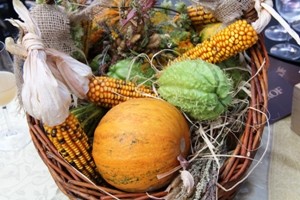Putting a Green Twist on Food Packaging
Putting a green twist on food packaging – Most of the food we buy is packaged. Nowadays, the majority of the packaging is derived from petrochemicals and is not biodegradable.
To address this problem, scientific researchers working on the European Succipack project are testing packaging made from PBS (polybutylene succinate), a natural material derived from plants.
The French company Leygatech is part of the project and now produces a small part of its packing using PBS.
How does the process work?
To begin the process, small granules are taken in their raw state from beetroot, wheat and corn leftovers. Discarded pieces are used so as not to interfere with regular agricultural production.
They are then fed into a machine, heated and compressed. The material is inflated and turns into a large bubble, formed of a thin film. Once the film has been cooled down, it is ready to use and is rolled up into large coils.
Why produce bio-sourced packaging?
Succipack Project Coordinator Christophe Cotillon outlined some of the benefits of PBS packaging.
“The advantages of this bio-sourced packaging are: that it is biodegradable, which is very important; and that it will gradually replace petrochemical packaging”, he explained. “As oil resources decline, we will have to find other means of producing packaging. The factory will be able to use the same machinery – it won’t need to buy other machines – and will also use the same technology.”
The film is tested for mechanical resistance, impact and tearing. Its aim is to prevent food from deteriorating, thus increasing its shelf life.
Head of the Leygatech laboratory Marion Monchalin talked us through the testing process.
“Today we are testing the strength of the material by dropping a weight on the film. We also manufacture this product here – it’s a barrier film, which preserves the olive oil and limits oxidation. And we are able to preserve the olive oil for a year”, she said.
Globally, the aim of the Succipack project is to make the most of underused and undervalued vegetable biomass and to reduce packaging sizes.
It is a long-term program. But researchers hope, in the future, packaging will be completely recycled, returning to nature as compost to fertilize the soil.
Category: Green Living, News Videos, Videos







